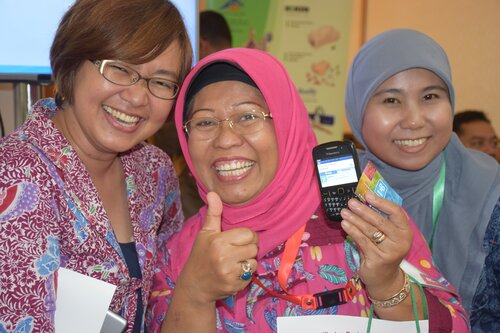UHC2030 hosted its annual UHC Day parliamentarian town hall to...
8 October 2018
The UHC2030 Technical Working Group on sustainability and transition from external funding presented this set of principles during the fifth Global Symposium on Health Systems Research, in Liverpool, UK.

UHC2030 launched the Statement on sustainability and transition from external financing during a breakfast meeting on 10 October at the fifth Global Symposium on Health Systems Research.
Attended by over 80 people, UHC2030 presented the statement of principles developed by the Technical Working Group on sustainability and transition.
What’s the Statement?
Health system strengthening is at the core of the response to transition if progress towards UHC is to be sustained. Transition provides the opportunity to examine how governance financing and service delivery are configured to ensure the sustainability of effective coverage of priority interventions and services towards UHC.
UHC2030 has developed a set of common principles to guide the actions of national governments, development agencies, private sector, civil society groups and other health actors, in response to transition from external funding. The principles aim to provide the basis for advocacy and political influencing and help inform transition related coordination in countries and globally.
Discussants drawn from government, development partners and civil society reflected on the implications of the statement for their own programming and practice and discussed what changes are needed to operationalize the statement.
H. E. Dr.Youk Sambath Director General, Department of Budget and Finance Ministry of Health Royal Cambodia said, “Government sources of funding are increasing in relation to donor funding. We have difficulties in getting accurate information from donors. Government needs better information to reduce overlaps and to be more efficient.”
Craig Burgess, Senior Technical Officer at the John Snow Research and Training Institute provided four suggestions about how to put principles on sustainability and transition into practice: inclusive community partnership, budget transparency including for those vulnerable, strong government leadership for UHC and advocacy for more resources keeping focus on the marginalized. “We must keep a focus on the poor and increase resources. Sustainability is not only about economics, it’s also about citizens and people and rights,” he said.
Toomas Palu Advisor Global Coordination Health Nutrition and Population World Bank, said, “We should aim to strengthen national health systems so that we co-finance government programmes instead of asking governments to co-finance donor programmes. This would allow for smoother transition, and more collaborative partnerships. This is the mindset and mental model change needed.”
Agnes Soucat Director of Health System Governance and Finance World Health Organization said, “On how WHO will work, we need to unlearn what we have been doing before and the old ways of working. We should move away from comfortable tools like investment cases for diseases, which are good for development partners. Funds for health will increase, but it is how countries use those funds to organize the health system that will be critical. We need to move away from low hanging fruit, towards long-term institutional strengthening that includes governance, legal, regulatory capacity and citizen engagement.”
Paul Rueckert Chief Technical Advisor (GIZ) GmbH said, “Development partners need to support the capacity building of institutions including governments, academia and think tanks. The time for gap-filling and replacing government staff has passed. .”
Mr. Kenneth Mugambe Director of Budget Ministry of Finance Uganda asked, “How we can put principles on sustainability into practice? 30% of funds are off-budget and this is still a problem in Uganda. So donors need to change. Governments also need to build their own health systems as no one else is going to do that for you.”
Short summary points from the Statement
1. Develop policies on transition within the context of universal health coverage that includes leaving no one behind.
2. Promote national ownership and good governance for people-centered approaches and social accountability for effective transition policies
3. Understand sustainability as a health system’s ability to sustain or increase effective coverage of priority interventions and associated outcomes towards UHC.
4. Adopt the perspective of the health system in transition processes, including the other sectors that influence health, and move away from a singular focus on specific individual health programmes.
5. Strengthen national institutions to ensure successful transitions.
6. Make the case for adequate domestic resources for the health sector as a whole.
7. Focus on transition as an opportunity for countries to improve the way they use resources.
8. Ensure that health systems strengthening and disease-specific programs work closely to identify barriers
and actions needed in order to progress towards UHC.
9. If you are a development agency support well-coordinated national transition plans that adopt a UHC perspective.
10. If you are a development agency operating at global and country levels, ensure consistency and synergies for coherent support to countries.
Resources
UHC2030 statement on sustainability and transition from external funds
Read also the Lancet article on transition and sustainability released 10 October 2018: From silos to sustainability: transition through a UHC lens
More UHC2030 News
A global health financing emergency threatens progress toward...
UHC2030 at HSR2024: Advancing equity and inclusion in health systems through civil society knowledge
UHC2030, in collaboration with the SUPPORT-SYSTEMS research...
